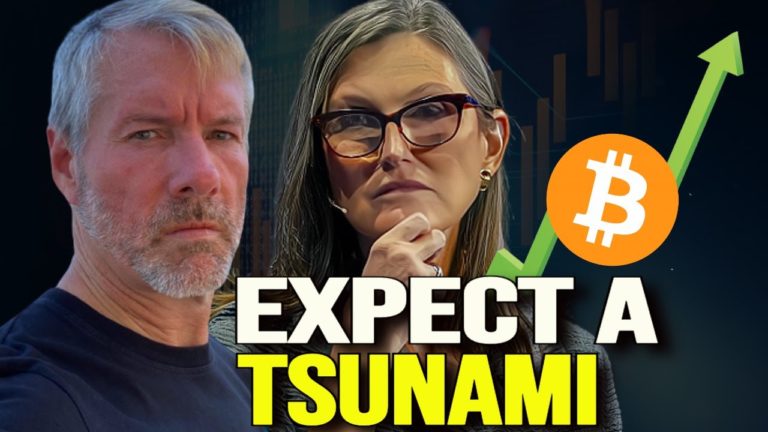The word cryptocurrency is misleading. Defining crypto as currency, begs for it to be beholden to our current banking and security regulatory framework.
And therein lies the issue: The U.S. government, primarily through the SEC, is trying to fit a square block into a round hole. They are attempting to squeeze crypto blockchains into the narrow definitions that the U.S. government is already accustomed to. They are ready to litigate with companies like Coinbase without having a sound basis to do so.
The latest tweet storm by Brian Armstrong, CEO of Coinbase, best exemplifies the misperception of crypto by the SEC.
6/ They refuse to tell us why they think it's a security, and instead subpoena a bunch of records from us (we comply), demand testimony from our employees (we comply), and then tell us they will be suing us if we proceed to launch, with zero explanation as to why.
— Brian Armstrong (@brian_armstrong) September 8, 2021
The SEC’s threat to litigate coupled without a response to Coinbase, amounts to the U.S. government actively stifling innovation within the nascent industry of crypto.
It is important for the SEC to understand that crypto is in a period of gestation, and just like damaging a seedling could impair its development into a great tree, so too can the U.S. damage the development of crypto by not letting it emerge on its own terms. Threatening Coinbase, and any other innovative company within this industry, will erode the United States reputation as a technology lodestar around the world. We risk losing our leadership role.
Brian Armstrong goes on:
12/ Ostensibly the SEC's goal is to protect investors and create fair markets. So who are they protecting here and where is the harm? People seem pretty happy to be earning yield on these various products, across lots of other crypto companies.
— Brian Armstrong (@brian_armstrong) September 8, 2021
Crypto is not money as we know it: even in the electronic forms of money that we are aware of, like credit cards, ACH transfers, or payment apps. And crypto is not an asset as we know it: like gold, silver, or any other store of value or security. In a sense, we have created these narrow definitions for ourselves by calling Bitcoin digital gold (or by constantly contrasting cryptocurrencies with inflation laden fiat).
Yes, with a fixed supply, Bitcoin and crypto do have qualities like gold. And yes, the protocols that drive crypto are conducive to a favorable monetary policy; however, these qualities are only a small sampling (the tusks of a giant elephant). They provide a diminutive perspective on what crypto is.
As discussed in a prior article, when scientists discovered the platypus, it took them decades to figure out what this odd creature was. Was it a kind of duck? A fish? Some type of groundhog?

We compare cryptocurrencies to what we traditionally know and understand. We do this as way to make sense of it. Therefore, most people (and the government) are fixated on the aspects of crypto which are familiar to them, such as the digital gold narrative, or even the peer-to-peer, decentralized narrative. However, these defining characteristics, too, leave out the essence of crypto.
It is a conundrum as to why Gary Gensler, the head of the SEC, is not aiding the industry by furthering people’s understanding, including the government’s. After all, he conducted an MIT course titled Blockchain and Finance, which has been made available for free online. He certainly has in depth knowledge of cryptocurrencies. Is he possibly being pressured by his constituents to regulate crypto prematurely?
Crypto’s contribution to humanity is still emerging. At its foundation, the Bitcoin network and other cryptos are primarily platforms through which the entire internet could be built upon. Applications like messaging, video, social media interactions… all these activities that we have adopted into our daily lives can be made more secure and user-friendly by way of crypto.
Thus, the cryptocurrencies themselves are a means for we the people to own the internet infrastructure of the future. This networking infrastructure itself is imbedded within the crypto as a form of decentralized currency. The two work together in tandem allowing for programmable exchanges of value. Value in broadest sense, value as means of expression—think digital art, music, tweets, NFTs, anything that is digitizable can be sent more securely through crypto.
Right night, the internet is controlled by the tech behemoths Facebook, Amazon, Apple, Microsoft, and Google—described by Evan McFarland as FAAMG in his book, The Blockchain Wars. These corporations by and large own and control the cloud services running the internet, its social media platforms, its search engines, and the devices by which we connect. Smaller multinationals (which are by no means small) must adhere to the dictates of these trillion-dollar corporations, or risk being sidelined. Coinbase is potentially one of the disruptors to take on these tech titans.
In fact, we too agree to all FAAMG’s surveillance capitalism, privacy intrusion, and monopolistic practices because, frankly, there are no other options.
But owning crypto is like owning a piece of the future decentralized, internet. This has never been possible before. An internet not under the technocratic, authoritarian control of FAAMG.
Thus, it is important for the SEC and the U.S. government to open its mind to the greater, democratic implications that crypto will unveil. Congress, which is spending our tax-payer money on investigating the FAAMG technocracy and its monopolistic, invasive, and authoritarian practices… can also embrace the decentralized, democratic crypto economy as means to empower people.
Mark Cuban, the internet pioneer and shark tank angel investor, has his own advise for Coinbase’s Brian Armstrong.
Brian, this is "Regulation via Litigation". They aren't capable of working through this themselves and are afraid of making mistakes in doing so. They they leave it to the lawyers. Just the people you don't want impacting the new technologies. You have to go on the offensive
— Mark Cuban (@mcuban) September 8, 2021
Rather than trying to understand cryptocurrencies by way of dusty old definitions stored in the annuls of technologically depraved legal statutes, we must listen closely to the harmonic sounds of this new instrument called crypto.






